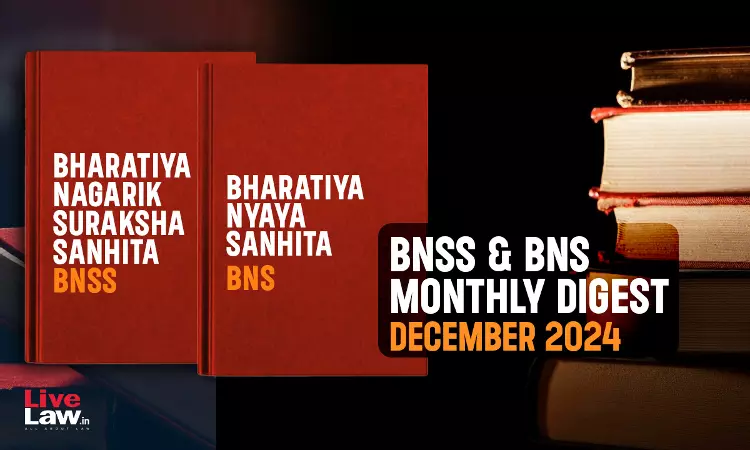Bharatiya Nagarik Suraksha Sanhita (BNSS) & Bhartiya Nyaya Sanhita (BNS) Monthly Digest: December 2024
Sanjana Dadmi
9 Jan 2025 2:59 PM IST

Next Story
9 Jan 2025 2:59 PM IST
Bombay High Court:Advocate Casting Aspersions On Woman's Character Upon Instructions From Client Is Discharging His Duty, Not Insulting Her Modesty: Bombay HCCase Title: Ratnadeep Ram Patil vs State of Maharashtra Citation: 2024 LiveLaw (Bom) 634The Bombay High Court recently held that an advocate, when casts aspersions upon a woman's character, on instructions from his client, is...
